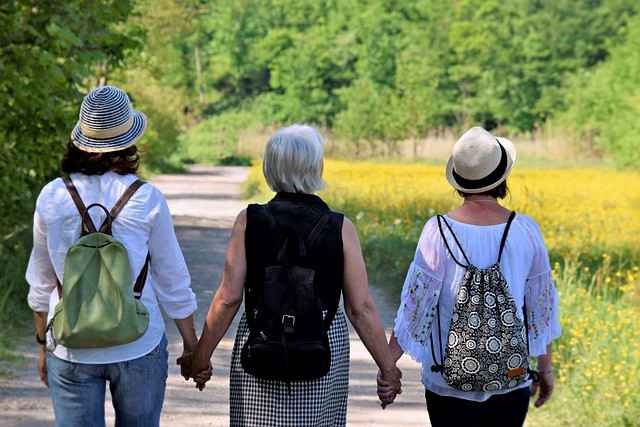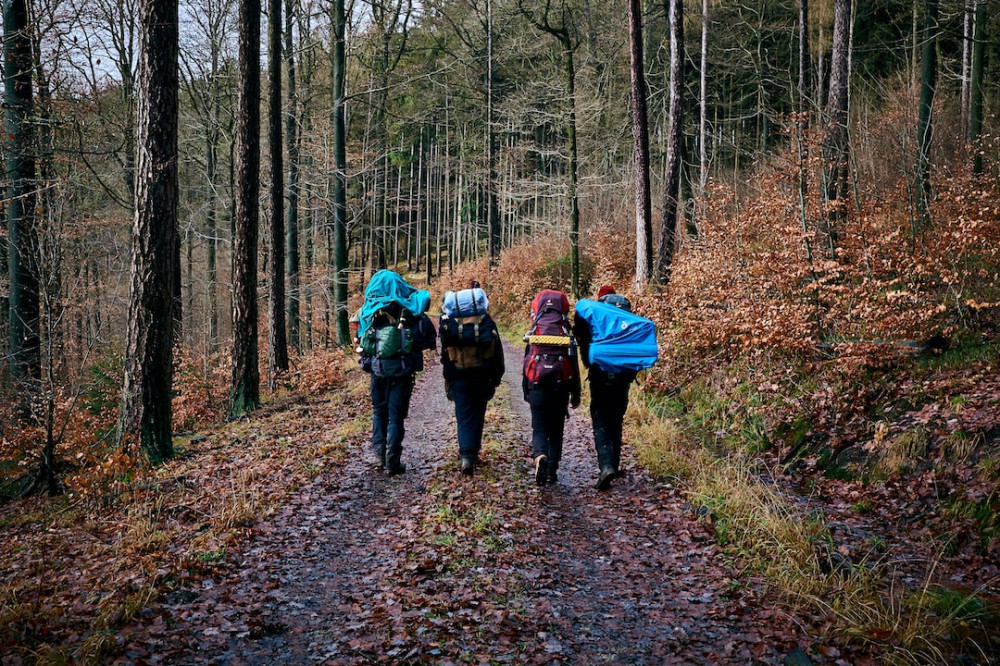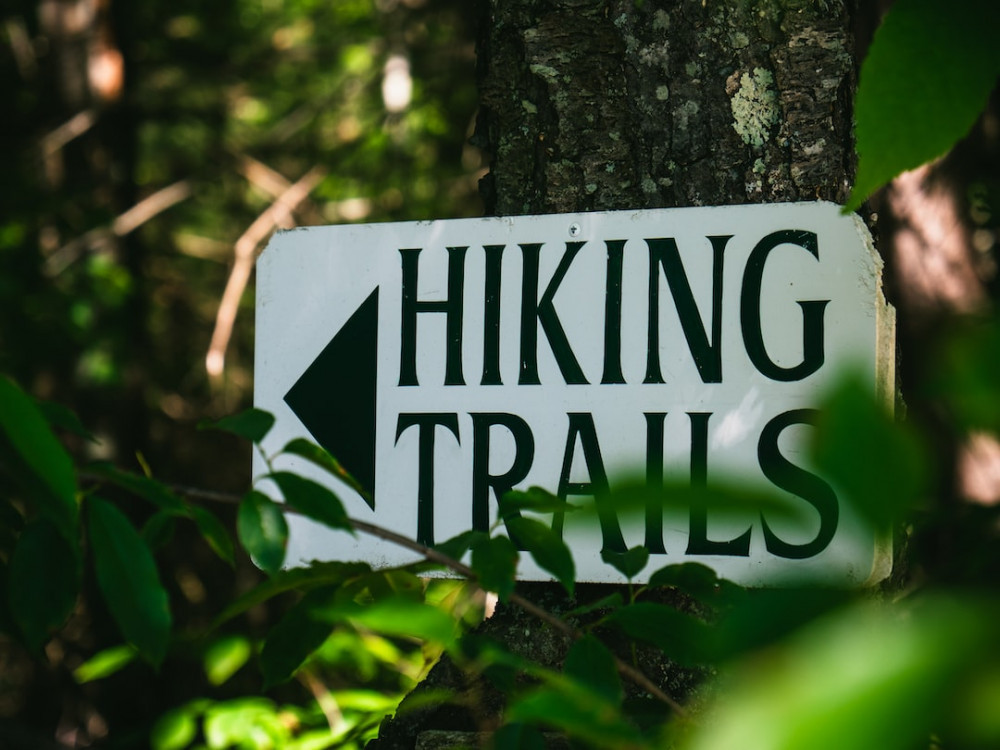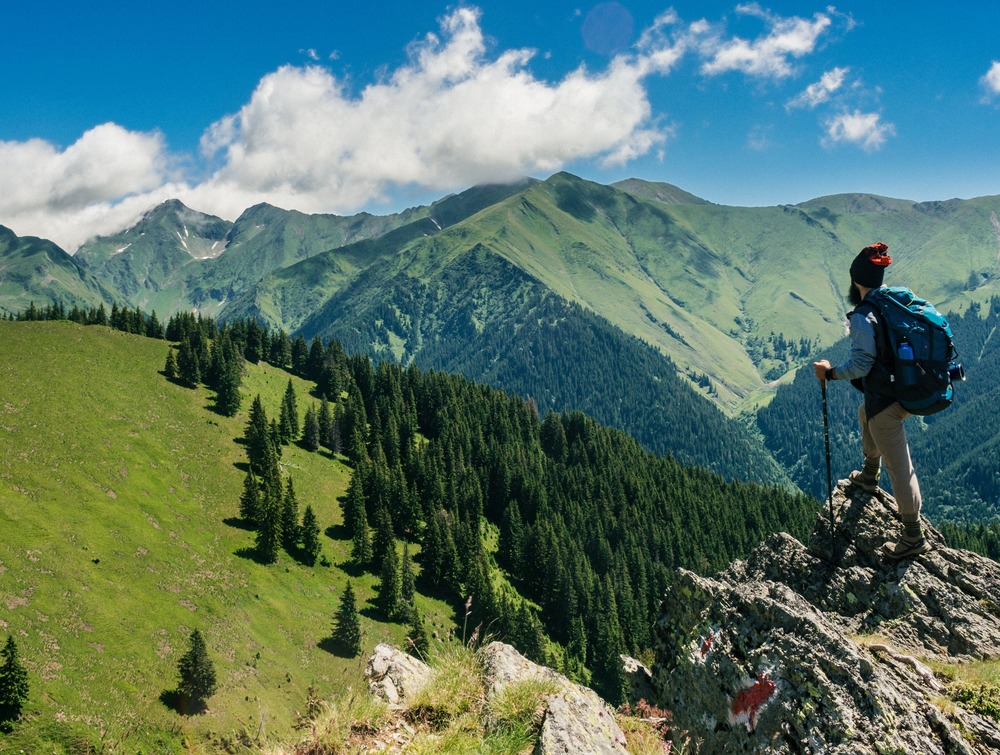When you want to explore nature, two popular choices are day hiking and backpacking. Both activities let you connect with nature, but they are also quite different. This article will explain the main differences between day hiking and backpacking. This will help you choose the adventure that fits your preferences and needs. Explore the key distinctions between day hiking and backpacking.
Dive into equipment requirements, trip duration, and the skills needed for each outdoor adventure. Make informed choices for your next wilderness outing. Delve deep into the realms of the great outdoors and understand the significant differences between day hiking and backpacking. Discover which trail calls to your heart! So, sit back and read on about understanding the difference between day hiking and backpacking. Let`s get started.

Understanding The Difference Between Day Hiking And Backpacking
Day hiking and backpacking may seem similar, but each provides a unique perspective of nature. Day hiking allows for short, refreshing bursts into the wild, while backpacking offers a deeper dive into the wilderness, challenging your endurance and survival skills.
Basics of Day Hiking: What is Day Hiking?
Day hiking refers to short treks that start and finish within the same day. These hikes don’t require camping overnight and typically range from a few hours to an entire day.
Essential Gear for Day Hiking
While day hiking is relatively simpler, carrying the right gear is crucial. Think lightweight, a comfortable backpack, enough water, snacks, a basic first-aid kit, the right clothing and sturdy shoes are the bare minimum.
Characteristics of Backpacking: What is Backpacking?
Backpacking is an extended adventure into the wilderness, often spanning several days or even weeks. It involves camping overnight and carrying everything you’ll need on your back.
Essential Gear for Backpacking
For backpacking, gear becomes more comprehensive. A durable backpack, tent, sleeping bag, first aid kit, cooking equipment, and adequate food and water are minimal essentials.

Comparing Day Hiking and Backpacking: Duration and Distance
Day hiking usually covers shorter distances, while backpacking involves longer routes and multiple days.
Gear and Preparation
For a day hike, preparations are minimal, while backpacking requires detailed planning, including route mapping, food supplies, and emergency contingencies.
Purpose and Goals
While day hiking aims for a quick nature fix, backpacking seeks a deeper connection with the wild, often with the goal of self-discovery and challenge.
Benefits of Day Hiking: Health Benefits
Day hikes are excellent cardio workouts, aiding in weight management and boosting heart health.
Mental Well-being
Short hikes act as perfect breaks from daily routines, reducing stress and rejuvenating the mind.
Easy and Accessible
Day hiking is perfect for beginners and those with time constraints.
Advantages of Backpacking: Closer to Nature
Backpacking offers an intimate connection with nature, away from the hustle and bustle of everyday life.
Build Survival Skills
Extended trips sharpen survival instincts and teach essential wilderness skills. If you are a beginner, take along a survival book and teach yourself along your journey.
Longer Adventures
Backpacking allows for longer, more immersive nature experiences of two to several days. I have ventured out many times for a weekend.
Choosing the Right Adventure for You: Consider Your Experience
If you’re a newbie, start with day hikes before jumping into backpacking. Read some of my other posts before venturing out on a long backpacking trip as a beginner. Over time, you will gain the survival skills you need to survive the great outdoors.
Learn from experienced backpackers, and watch YouTube videos. Start with your local wooded area to gain the skills and experience will you need. If you run into trouble or have forgotten something, you can always pop home or ask a family member or friend to bring it to you.
Evaluate Your Goals
Ask yourself, are you looking for a quick escape or a challenging expedition?
Assess Your Equipment
Your gear will determine the kind of trip you can undertake.

Transitioning from Day Hiking to Backpacking: Skills Needed
Learn essential skills like navigation, cooking, and setting up a camp.
Gear Upgrades
Invest in high-quality gear suitable for longer trips.
Training and Preparing
Physical conditioning and wilderness training will make your transition smoother.
Safety Tips for Both Adventures: Stay Informed
Always check weather forecasts and potential trail alerts. Weather conditions can change very quickly, so be prepared.
Always Inform Someone
Share your plans with someone, ensuring they know your whereabouts and when you intend to return.
Pack Essential Safety Gear
Always carry a whistle, flashlight and head torch, first-aid kit and navigational equipment like a map and compass, phone or a GPS device. You can download the Maps.me app for your phone free. My advice is to carry some sort of solar charger in case your devices lose battery life, always have a backup.
Learn how to use a map and compass here.

FAQs (Frequently Asked Questions)
How do I decide if I’m ready for backpacking?
Start with multiple-day hikes. If you’re comfortable and crave longer adventures, consider backpacking.
Can I backpack alone?
Yes, but ensure you’re well-prepared and inform someone of your plans.
Is special training required for backpacking?
Wilderness courses are beneficial, especially for beginners. Do your research and never head off into the wilderness unprepared.
How do I ensure I’m safe while hiking or backpacking?
Always stay informed, stick to marked trails, and carry essential safety gear. Be prepared for wild animals and prepare accordingly, do research on the trail you intend to take. Tell someone about you trip and when you intend to return.
How much should my backpack weigh for backpacking?
Ideally, no more than 20% of your body weight. As a beginner, you will feel the pain of shoulder soreness and foot blisters, but over time your body will adapt. Wearing the right hiking boots and choosing the right backpack will have a better impact on your well-being.
Do I need a permit for backpacking?
Some areas require permits. Always check regulations before heading out. In the UK wild camping is frowned upon, so always seek permission when and where you can, and remember, “leave no trace” principles apply.
Conclusion
The thrill of the great outdoors beckons to many. But before stepping into nature, one must understand the differences between day hiking and backpacking. While both are fantastic ways to immerse oneself in nature, their demands, preparations, and overall experiences are poles apart.
Day hiking and backpacking are both outdoor activities that let you appreciate nature. But, they cater to different preferences and levels of commitment. Day hiking allows you to enjoy nature during the day without overnight stays.
Backpacking gives a more immersive wilderness experience. Your choice depends on your available time, experience level, and comfort preferences. So, whether you`re day hiking or backpacking, get out there and enjoy what the world has to offer.


